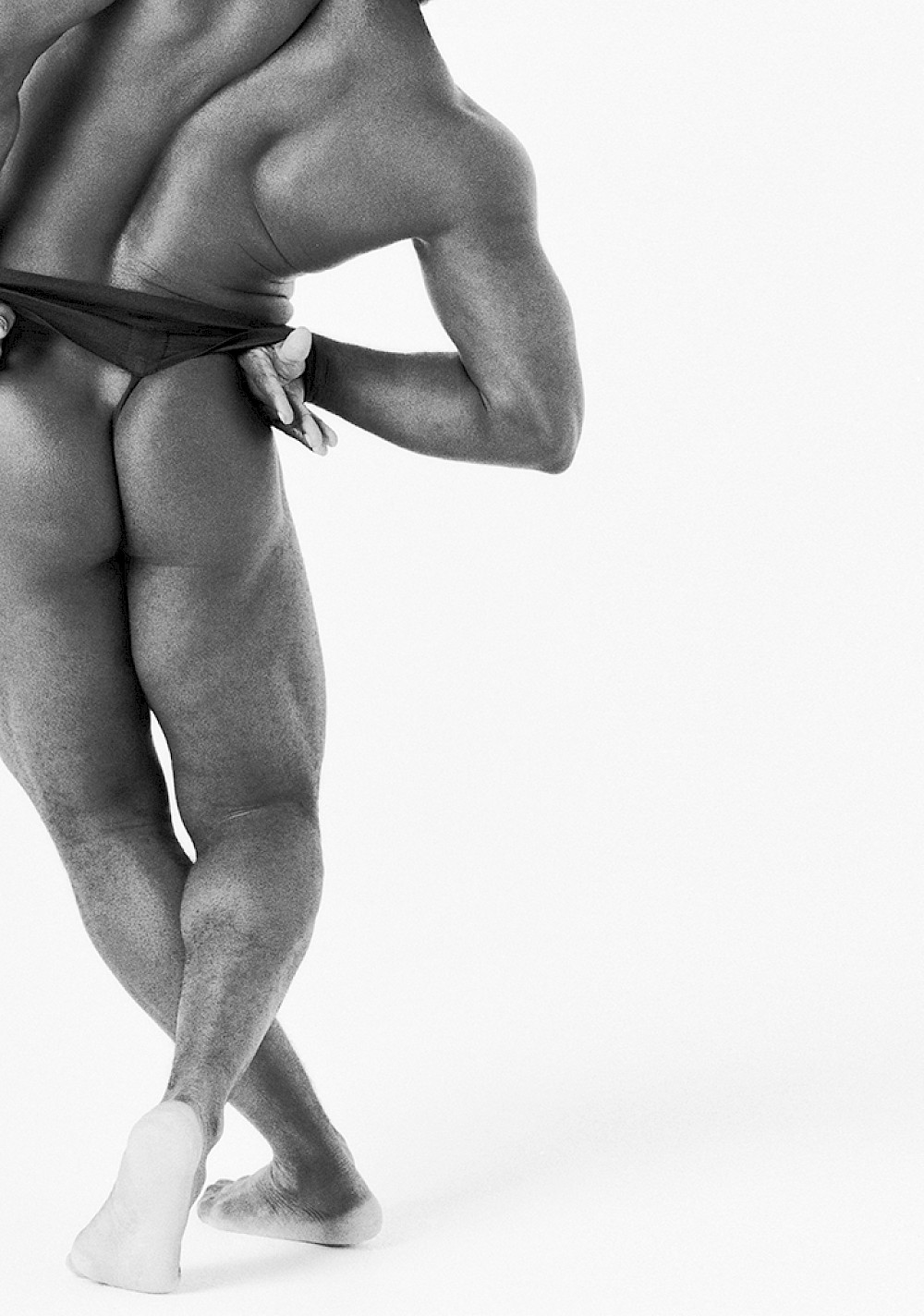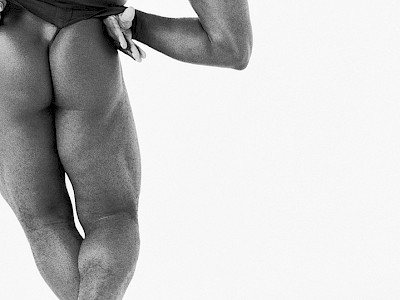08 — 12.05.2020
Performing a swaying walk, which can be both lively and sinuous, and supple undulations and movements from the waist, the faces of the five dancers choreographed by Franco-Ivorian Nadia Beugré are not visible. The choreography that connects them and is executed solely using their backs is inspired by dance techniques and styles that principally utilise the pelvis. With the insistent use of buttocks, these practices are seen as being more feminine, challenging or even chipping away at a strongly built and assimilated masculinity. If the issue of gender has always featured in Nadia Beugré’s work, in L’homme rare she tackles it more head-on by offering an inversion of “male / female attributes” and questioning the attention paid to bodies and the qualities attributed to their movements. Starting with a game that blurs our perceptions of gender, the choreographer places the spectator in the position of a voyeur, which she connects to the outcome of her research on our understanding of the body, notably black and male, in history and today. With references to a series of old photographs of slave markets in the Ivory Coast consulted by the artist, L’homme rare also becomes a reflection on the history of European’s gaze on black bodies and its persistence today.
See also:
Artist talk
Presentation: Kunstenfestivaldesarts-Théâtre Les Tanneurs
Creation and choreography: Nadia Beugré
Performers: Lucas Nicot, Daouda Keita, Nadim Bahsoun, Vadel Guei
Technical direction and light: Anthony Merlaud
External eye: Faustin Linyekula
Production : Studios Kabako / Virginie Dupray, with the support of Latitudes
Contemporaines
Coproduction : Kunstenfestivaldesarts ; Théâtre de la Ville ; Festival d’Automne à
Paris ; Montpellier Danse 2019/2020 résidence de création à l’Agora, cité
internationale de la danse, with the support of Fondation BNP Paribas ; CCN2,
Centre Chorégraphique National de Grenoble ; Centre Chorégraphique National
d’Orléans – direction Maud Le Pladec ; Kunstencentrum Vooruit ; Musée de la
Danse, Centre Chorégraphique National de Rennes et de Bretagne ; BIT Teater
garasjen
With the support of: L’échangeur CDCN Hauts-de France (Studio Libre)
Nadia Beugré
Nadia Beugré was born in Ivory Coast in 1981. She made her first appearance in 1995 as a member of the Dante Theatre, where she trained in traditional dance. Two years later, she became a founding member of Béatrice Kombé’s groundbreaking, all-female dance ensemble, TchéTché, with whom she toured for years to critical acclaim across Africa, Europe and North America. Following Kombé’s untimely death in 2007, Beugré immersed herself in contemporary dance by taking choreography classes with Germaine Acogny in Senegal, and continued her training in 2009 by joining Ex.e.r.ce., Mathilde Monnier’s programme for talented, up-and-coming choreographers at the Centre Chorégraphique National de Montpellier.
She was soon staging productions of her own, such as Un espace vide: moi ('An empty space: me') in 2009 and Quartier libres ('Free Territory') in 2012, and still touring, and attracting attention from estimable publications like The New York Times, which wrote of her work: ‘It's harrowing, both in action and sound, Ms. Beugré knows how to make a crowd trust her just as, in a split second, she knows how to knock the air out of people. She’s wild, like the wind.’
Legacy premiered at the La Bâtie festival in Geneva in 2015 and has also been performed at the Festival d'Automne in Paris, among other events. Beugré’s most recent piece, Tapis Rouge (2017), builds on an earlier work she co-created with Sébastien Martel for the Festival d'Avignon in 2014.
She created Roukasskass Club in 2018 and is currently working on the creation of L'homme rare,
which will premiere in 2020.
Beugré also performs in works by fellow choreographers, such as Seydou Boro (Burkina Faso), Alain Buffard (France), Dorothée Munyaneza (France/Rwanda), Faustin Linyekula (DRC), Bernardo Montet (France) and appeared in Boris Charmatz’s 10 000 gestes. In 2017, Nadia Beugré began a five-year artist-in-residence programme at De Vooruit in Ghent.
© Kunstenfestivaldesarts


